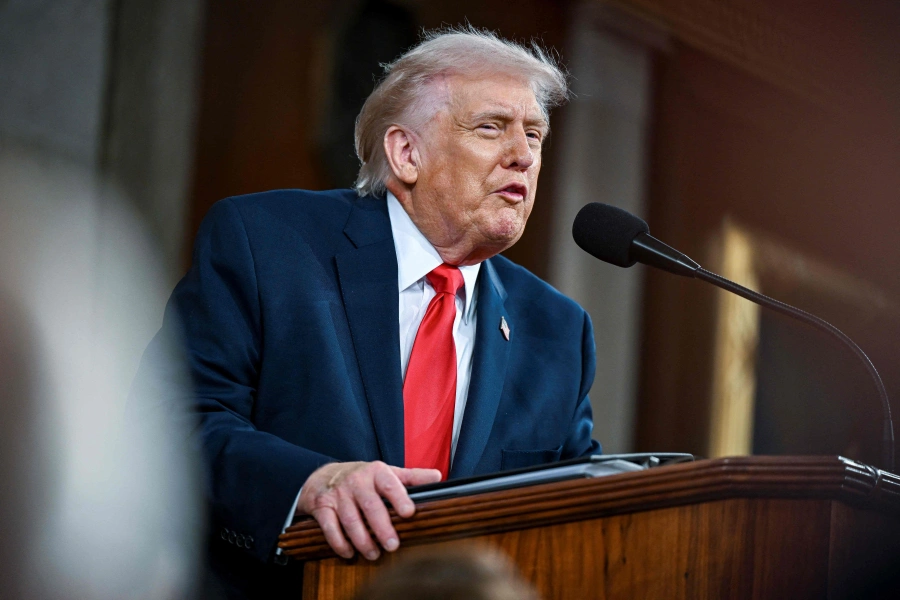At a glance, the Common Minimum Program was the demand of the Maoist Center, which has been calling for an all-party mechanism to make governance easier. Experts in bureaucracy, administration, and law say that the formulation of such a program seems to have become a fashion in Nepal instead of a necessity.
The Common Minimum Program (CMP) is a future policy adopted by coalition governments in Nepal. It is usually framed as a minimum objective to accomplish the task of a coalition government. Nepali Congress leader and CMP coordinator Purna Bahadur Khadka unveiled a 14-page document at a program. Many senior leaders including Prime Minister Sher Bahadur Deuba, CPN (Maoist Center) Chairman Pushpa Kamal Dahal and Janata Samajwadi Party Chairman Upendra Yadav were present on the occasion. But Madhav Nepal's absence is taken as meaningful.
Various political parties go to the polls with their agendas and commitments. As partners in a coalition government, they are not in a position to translate those promises into action. So the partners outline some minimal general objectives. This leads them to formulate a CMP.
Prime Minister Sher Bahadur Deuba has not been able to give his government a full shape even after a month of the formation of his government. The CMP of his government states that border security posts (BOPs) should be increased for border security and control of smuggling, bilateral and multilateral use of water resources in the national interest, and effective implementation of the water resources policy.
The government has stated that foreign aid will be mobilized through the budgetary system under the ownership and leadership of the government in the areas of national priority including the construction of physical infrastructure, and a review of treaties and agreements which are against the national interest will be done.
Similarly, it talks about controlling the rising cost of living, black market, adulteration, and artificial scarcity and to provide an easy and accessible supply of food, petroleum, and other essential daily necessities and services to the people. The policy and program also state to provide relief and rehabilitation to the people of flood and landslide affected areas including Manang, Lamjung, Gorkha, Bajura, Sindhupalchowk and Saptari, and to give priority to river control and reconstruction work in flood-prone areas in TeraiMadhes.
Nepal's new government has issued a CMP for the peaceful resolution of border disputes with India. It is said that the government believes in resolving the border dispute through diplomatic channels.
We do not agree with the govt’s common minimum program: Dhakal
_20230226123652.jpg)
Prime Minister Sher Bahadur Deuba wants a peaceful solution to the border dispute with India. Because of this, the Nepali Prime Minister released a 14-page CMP in August. Through this CMP, Nepal has spoken of a balanced foreign policy. Nepali Congress leader Khadka said that the government's priority was to resolve the border dispute with neighboring countries including Limpiyadhura, Kalapani, and Lipulek through diplomatic channels. He said that the government would pay special attention to strengthening friendly relations with the neighboring countries to promote cooperation, according to the document.
Priority has been given to vaccinating all citizens against COVID-19, ending the political peace process, providing relief to epidemic-affected industries as well as marginalized people, and preventing corruption.
In the economic sector, the CMP said an economic package would be brought to boost the economy of the country affected by the coronavirus pandemic. In addition, the affected industries will be encouraged with a special focus on tourism.
The CMP of the coalition government, issued to run the current government, seems to have emphasized pandemic control, industrialization, and production-oriented economy. The private sector hopes that the emphasis on a productive economy will lead Nepal to the path of industrialization and help increase the consumption of Nepali goods.
Also, it talks about vaccinating one-third of the citizens within the coming September, vaccinating all eligible citizens by Chaitra, providing relief packages to industries, tourism business, communication, transportation, party palaces, gymnasiums, recreation and unemployed who are in crisis due to COVID-19. Even the private sector has taken it positively.
The government and the private sector need to work together to increase our capacity in the health sector by taking the initiative to set up a vaccine lab in Nepal for vaccine production. Similarly, the announcement of administrative reforms to reduce public service delivery by one-third is expected to improve Nepal's doing business index.
According to some officials in the previous government, the joint program has brought chaos, but it would not be an exaggeration to say that the joint program is a document of limitation in itself.
It is said that the coalition government’s CMP has come to create change in the country. It is said that the program has a bias against the federal government in finding a solution to the problem by clearly identifying the shortcomings in the running of the three-tier government.
It is also said that the provincial governments have not been able to function due to the federal government which ‘does not recognize the problems of running the state government’. The Fifteenth Plan was not mentioned anywhere even though the joint minimum program of the coalition government was made by including some aspects of the Fifteenth Plan in this document.
It has been decided to graduate Nepal from a least developed country to a developing country by 2026 BS. This raises the question of whether such a document was really necessary and whether it would be convenient for the regime. Such programs are formalized and do not matter, as they repeat what is already known or laid down by the constitution or laws or policies. Even in the past, when there were coalition governments, such CMPs would be issued but not implemented. So, some former administrators do not see any relevance of the government’s CMP.
At a glance, the CMP is the demand of the Maoist center, which has been calling for an all-party mechanism to make governance easier. Experts in bureaucracy, administration, and law say that the preparation of a CMP seems to have become a fashion in Nepal instead of a necessity.
The Deuba government should either continue the budget brought through an ordinance or bring a new budget or amend the same budget. Deuba needs numbers in parliament to amend the budget. His government, which has only a year and a half left to govern, should focus on basic good governance. According to experts, the priority should be to vaccinate as soon as possible, revive the economy, get the constitution on track, and hold elections on time. Since the government has to work under the constitution, laws, rules, and policies, the CMP is the only means to do that, political and constitutional experts say.
The private sector has said it is waiting for the full implementation of the government's CMP recently introduced by the government. The Federation of Nepalese Chambers of Commerce and Industry, Confederation of Nepalese Industries, and Nepal Chamber of Commerce - three umbrella organizations of the private sector - have said that some expectations of the private sector will be met if the joint program is implemented.
The private sector, which has always felt a great deal of difference in the politicians’ speeches and their behavior, has said that the government can be trusted if the program is followed literally.
As the government has given priority to small, medium, and cottage industries and the most affected areas, it is necessary and imperative to pay attention to its implementation.
The government's program to expand the vaccination campaign seems to be appropriate, and vaccination is essential to keep the economy afloat. Similarly, the announcement to modernize and commercialize subsistence agriculture is positive. Timely amendments to international trade agreements are also a positive thing.
On the whole, programs such as Digital Nepal, River Diversion and Underground and Lift Irrigation Program, Relief Distribution, Lending on Certificate of Educational Certificate are the continuations of the previous government. The government will implement the remaining tasks of the Comprehensive Peace Agreement and agreements with various parties to complete the peace process, guarantee the supremacy of the constitution, the rule of law, and good governance, implement the agreements reached with various parties, and implement federalism. The main priority is to formulate necessary laws for the empowerment of the provincial and local governments and finalize the bills under consideration in parliament.
Similarly, emphasis will be laid on high and equitable economic development, laying the foundation for socio-economic transformation, emphasis on a productive economy, improvement in supply management, cost control, and taking initiatives for investigation and action against corruption. Upliftment of areas including party palaces, gyms, cinema and the entertainment industry and provision of a special economic package for the relief of working, destitute, unemployed, etc. affected by COVID-19, rescue, relief, and rehabilitation of people affected by floods, fires, and drownings, protection of national interest. To do so and for the prosperity of the people, the issue of adopting an independent and balanced foreign policy and strengthening national unity by developing a culture of mutual dialogue, consensus, and cooperation has been given high priority.








































